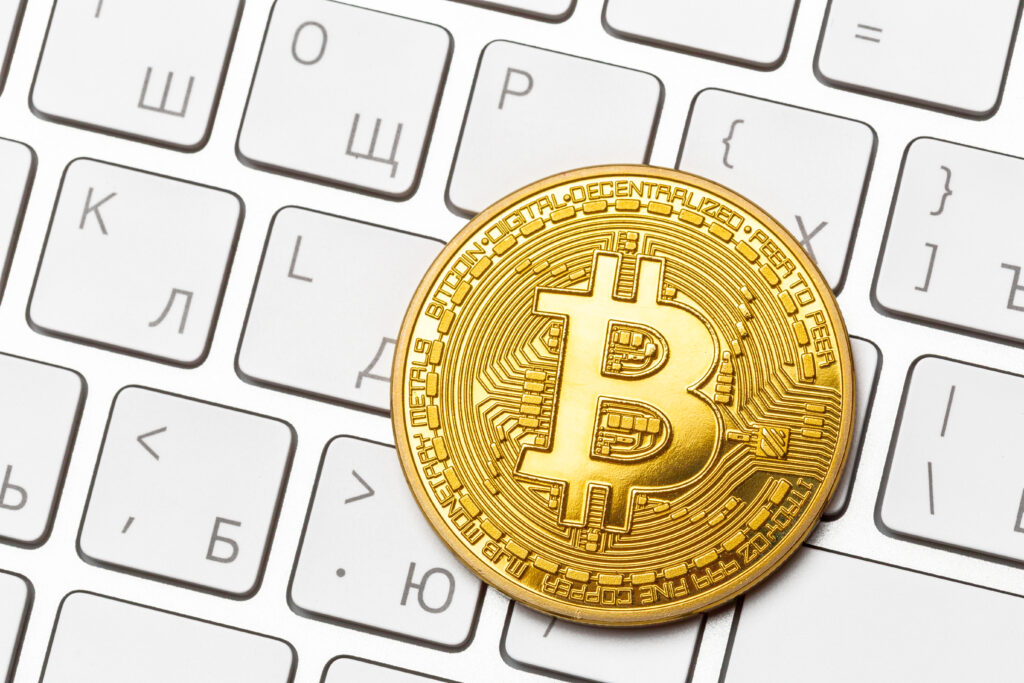Understanding blockchain technology
Blockchain technology emerged from the 2008 Bitcoin white paper as a radical approach to storing and verifying information. A blockchain is a distributed ledger maintained across a decentralised network of computers.
Each participant holds a full or partial copy of the ledger, and each new record is grouped into a block that is linked to previous blocks through cryptographic hashing. The system ensures immutability because any alteration of a record demands the recalculation of every subsequent block.
That requirement becomes practically impossible when the ledger is distributed across thousands of nodes. Trust is achieved through consensus algorithms that validate transactions without a central authority.
The most widely used consensus mechanisms include Proof of Work and Proof of Stake. Both ensure agreement on transaction validity, although they differ significantly in computational intensity and energy consumption.
Encryption techniques and smart contracts provide additional features. Smart contracts operate as self-executing pieces of code recorded on a blockchain. Once agreed parameters are met, they automatically trigger actions such as payments or product releases.
Blockchain technology, therefore, functions not only as a secure ledger but as an autonomous execution environment for digital agreements.
The valuable property arises from decentralisation. Instead of relying on a single organisation to safeguard information, the system spreads responsibility and ownership across the network.
Fraud becomes more difficult, data availability improves, and censorship resistance increases. These characteristics attracted early adopters in finance, although interest soon expanded into supply chain management, healthcare, digital identity systems and electronic commerce.
The transparency, traceability and programmability of blockchain technology introduced new possibilities for verifying transactions, enforcing rules, and reducing dependencies on intermediaries. These properties made it appealing for online markets that require trust between large numbers of strangers.
Overview of major global e-commerce platforms
An e-commerce platform is a digital environment that enables businesses and individuals to buy and sell goods or services online. It provides essential functions such as product listings, payment processing, inventory management, customer support and logistics integration.
Instead of handling each function independently, sellers rely on the platform’s infrastructure to reach customers, manage transactions and ensure secure and reliable delivery.
E-commerce platforms have evolved rapidly over the last two decades and now operate as global digital ecosystems. Companies such as Amazon, Alibaba, eBay, Shopify, and Mercado Libre dominate much of the global market.
Each platform has built its success on efficient logistics, secure payment systems, powerful search technologies, recommendation algorithms and extensive third-party seller networks. Yet each platform depends on centralised data systems that assign authority to the platform operator.
Amazon functions as an all-in-one marketplace, logistics provider, and cloud infrastructure supplier. Sellers rely on Amazon for product storage, fulfilment, payments, advertising and customer trust.
The centralised structure enables Amazon to deliver high service reliability and instant refunds, while granting Amazon significant control over pricing, competition and data.
Alibaba operates a two-tiered system with Alibaba.com serving business-to-business (B2B) trade and AliExpress catering to international consumers. Its platforms rely on Alipay for secure transactions and on vast networks of Chinese suppliers.
Alibaba uses an AI-driven tool to manage inventory, fraud detection and personalised recommendations. The centralised model allows for strong coordination across sellers and logistics partners, although concerns often arise around counterfeits and data visibility.
eBay uses an auction and fixed-price model that supports both personal resales and professional merchants. It depends heavily on reputation systems and buyer protection schemes.
Dispute resolution and payment management were traditionally run through PayPal, later reintegrated into eBay’s own system. Although decentralised in terms of sellers, eBay remains centralised in its enforcement and decision-making.
Shopify functions as an infrastructure provider rather than a marketplace. Merchants build their own shops using Shopify’s tools, integrate third-party apps and manage independent payment gateways through Shopify Payments.
Although more decentralised on the surface, Shopify still holds the core infrastructure and retains ultimate authority over store policies.
Across all major e-commerce platforms, centralisation creates efficiency, but it also produces trust bottlenecks. Buyers depend on the platform operator to verify sellers, protect funds and manage refunds. Sellers depend on the operator for traffic, transaction processing and dispute management.
Power inequalities emerge because the platform controls data flows and marketplace rules. That environment encourages exploration of blockchain-based alternatives that seek to distribute trust, reduce intermediaries and automate verification.
How blockchain technology intersects with e-commerce
The relationship between blockchain technology and e-commerce can be divided into several major areas that reflect attempts to solve persistent problems within online marketplaces. Each area demonstrates how decentralised technology is reshaping trust and coordination instead of relying on central authorities.
Let’s dive into some examples.
Payments and digital currencies
The earliest impact arose from blockchain-based digital currencies. Platforms such as Overstock and Shopify began accepting Bitcoin and other cryptocurrencies as alternative payment methods.
Acceptance was driven by lower transaction fees compared to credit card networks, the elimination of chargebacks and faster cross-border payments. Buyers gained autonomy by being able to transact without banks, while sellers reduced exposure to fraudulent chargebacks.
Stablecoins further extended the utility of blockchain payments by reducing volatility through pegs to traditional currencies. Platforms started experimenting with stablecoin settlements that allow rapid international payments without the delays or costs of traditional banking infrastructure.
For cross-border commerce, stablecoins offer a major advantage because buyers and sellers located in different financial systems can transact directly.
While integration remains limited across mainstream platforms, blockchain wallets and cryptocurrency gateways illustrate how decentralised finance can complement e-commerce rather than replacing it.
Major challenges include regulatory uncertainty, fluctuating exchange rates, tax complexity and limited consumer familiarity.
Supply chain transparency and product authenticity
Blockchain technology provides auditable and immutable records that improve supply chain transparency. Companies such as Walmart, Carrefour and Alibaba have introduced blockchain-based tracking systems to verify product origins.
For high-value items including luxury goods, pharmaceuticals or speciality foods, authenticity is critical. A blockchain tracker records each stage of production and logistics from raw materials to retail delivery. Consumers can verify product history by scanning a QR code that accesses the ledger.
E-commerce platforms benefit because trust increases. Sellers find it easier to demonstrate the legitimacy of products, and counterfeit goods become easier to identify. Instead of depending solely on platform reputation systems, transparency is shifted to verifiable data that cannot be easily altered.
E-commerce, therefore, gains an additional trust layer through blockchain-backed provenance.
Decentralised marketplaces
A newer development involves decentralised e-commerce marketplaces built directly on blockchain networks. Platforms such as OpenBazaar, Origin Protocol, Boson Protocol and various Web3 retail experiments allow for peer-to-peer trade without central operators.
Smart contracts automate escrow, dispute handling, and payments. Buyers acquire goods by locking funds in a smart contract, sellers ship items and final confirmation releases payment.
The model reduces fees because no central operator takes commissions. Governance becomes community-driven through token-based voting. Control over seller data, reputation, and transactions is shared across the network instead of being held by a corporation.
Although adoption remains small compared to conventional platforms, decentralised marketplaces demonstrate how blockchain could transform current power structures in e-commerce.
Significant obstacles remain. Users must manage digital wallets, transaction costs fluctuate with network activity, and the user experience often feels less polished than that of mainstream platforms.
Without strong brand recognition, trust formation is slower. Nevertheless, the model indicates how blockchain could enable marketplaces that operate without dominant intermediaries.
Smart contracts and automated commerce
Smart contracts provide automated enforcement of agreements. Within e-commerce, they can manage warranties, subscriptions, service renewals, loyalty rewards and escrow arrangements.
Instead of relying on human moderators, refund conditions or service obligations can be encoded into smart contracts that release payment only when the conditions are met.
Automated commerce extends further when smart contracts interact with Internet of Things devices. A connected device could autonomously purchase replacement parts or consumables when necessary.
E-commerce platforms could integrate smart contract logic to handle inventory restocking, supplier payments or automated compliance checks.
The special nature of smart contracts improves reliability because actions cannot be arbitrarily reversed by a platform operator. However, coding errors and rigidity create risks because smart contracts cannot easily adapt once deployed.
Governance frameworks such as decentralised autonomous organisations attempt to manage contract upgrades and dispute processes, although they remain experimental.
Tokenisation and loyalty systems
Blockchain technology also enables the tokenisation of loyalty points, vouchers and digital assets. Instead of centralised reward programmes that limit transferability, tokenised loyalty points can be traded, exchanged or used across multiple platforms.
Sellers gain marketing flexibility while buyers gain value portability.
E-commerce platforms have explored non-fungible tokens (NFTs) as digital certificates for physical goods, especially within luxury fashion, collectables and art-related markets. Instead of simple receipts, NFTs act as verifiable proof of ownership that can be transferred independently of the platform.
Although the market has experienced volatility, the experiment highlighted how blockchain can merge physical and digital commerce.
Data ownership and privacy
Centralised e-commerce collects extensive customer data, including purchasing behaviour, preferences and browsing patterns. Blockchain technology introduces alternative models where users hold their own data and selectively grant access through cryptographic permissions.
Instead of businesses accumulating large datasets, consumers become the custodians of their personal information.
Self-sovereign identity solutions allow users to verify age, location or reputation without exposing full personal profiles. This approach could reduce data breaches and strengthen privacy protection.
E-commerce platforms could integrate verification without storing sensitive information. Adoption remains limited, although interest is growing as data protection regulations increase.
Assessment of combined impact
The combination of blockchain technology and e-commerce represents a gradual shift toward decentralised trust models. Traditional platforms depend on central authorities to enforce rules, settle disputes, and secure transactions.
Blockchain introduces alternatives that distribute these responsibilities across networks and algorithms. The synergy creates several potential impacts.
Traceability and transparency improve product trust. Automated contracts reduce operational complexity. Decentralised payments shorten cross-border settlement times. Tokenisation creates new commercial models where digital and physical goods are tied to verifiable ownership.
Data ownership frameworks give buyers greater control over information. Taken together, these features increase resilience and reduce reliance on single intermediaries.
However, integration also encounters notable challenges. User experience remains a critical barrier because decentralised systems often require technical understanding. Regulatory frameworks for cryptocurrency payments, smart contract disputes and decentralised marketplace governance remain uncertain.
Energy consumption concerns affect public perception, although newer blockchains use far more efficient consensus mechanisms. Large platforms may resist decentralisation because it reduces their control and revenue streams.
The most realistic pathway is hybrid rather than fully decentralised commerce. Mainstream marketplaces can incorporate blockchain features such as supply chain tracking, tokenised loyalty, and optional crypto payments while retaining central management for dispute resolution and customer support.
A combination like this delivers benefits without sacrificing the convenience of familiar interfaces.
Future outlook and complementary technologies
Blockchain technology will continue to shape e-commerce, although it will evolve alongside other technologies rather than acting alone. Several developments appear likely to influence the next decade of online commerce.
AI will integrate with blockchain to enhance fraud detection, automate dispute processes, and analyse supply chain data. Instead of opaque AI systems, blockchain can record decision rules or training data in transparent ways that improve accountability.
Internet of Things networks will use blockchain for device-to-device payments and micro-transactions. Connected appliances could automatically reorder supplies or arrange maintenance using autonomous smart contracts. A model that expands e-commerce from human-initiated purchases to machine-driven commerce.
Decentralised identity solutions will simplify verification for both buyers and sellers. Instead of uploading documents to multiple platforms, individuals will maintain portable digital identities controlled by cryptographic keys.
E-commerce platforms will verify the necessary attributes without storing personal information. Such an approach aligns with privacy regulations and reduces fraud.
Quantum-resistant cryptography will become essential as quantum computing advances. Blockchain networks will need upgrades to maintain security. E-commerce platforms built on blockchain will therefore rely on next-generation cryptographic systems.
AR and VR will integrate with blockchain through tokenised digital goods that move between immersive environments and real-world marketplaces.
Luxury brands already experiment with digital twins of physical products. That trend will only deepen as consumers spend more time in virtual spaces.
The future of e-commerce will not depend on a single technology. Instead of blockchain replacing conventional systems, it will act as a foundational layer that strengthens transparency, trust, and automation.
E-commerce platforms will selectively adopt decentralised features that complement their existing operations while retaining user-friendly interfaces and established logistics networks.
In conclusion, blockchain has reshaped expectations of trust within digital environments. Its decentralised architecture, immutability, and programmability have introduced new opportunities for secure payments, supply chain verification, automated agreements and data sovereignty.
E-commerce platforms recognised the potential and began integrating blockchain features to improve authenticity, reduce fraud and expand payment options. The combination offers a powerful pathway toward more transparent and efficient commerce.
Yet challenges remain as user experience, regulation and scalability continue to influence adoption. The future of our transactions is to be hybrid, with blockchain supporting specific components of e-commerce rather than replacing established models.
Complementary technologies, including AI, IoT, decentralised identity and quantum-resistant security, will reinforce these developments. E-commerce will evolve toward ecosystems where automation, transparency and user empowerment become standard expectations.
Blockchain technology will play a central role in that transformation, although its greatest impact will emerge through careful integration rather than radical disruption.
Would you like to learn more about AI, tech and digital diplomacy? If so, ask our Diplo chatbot!
















